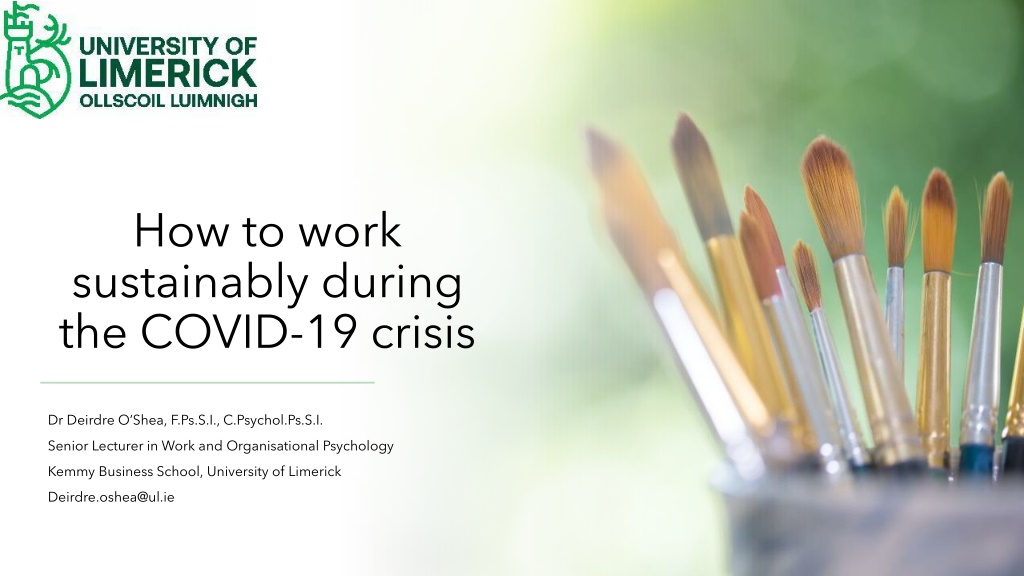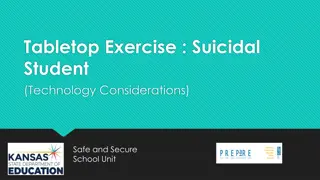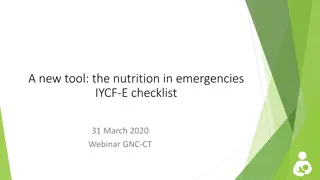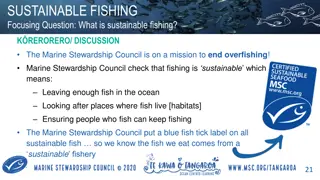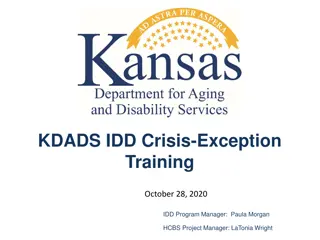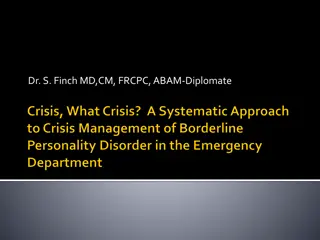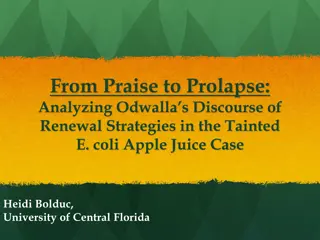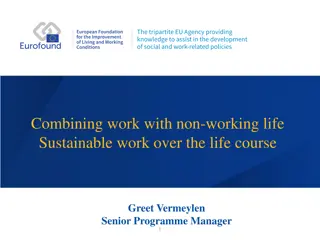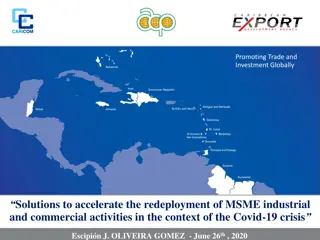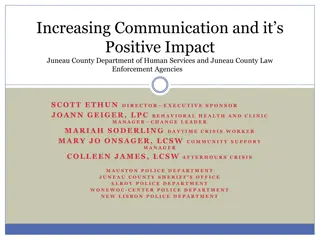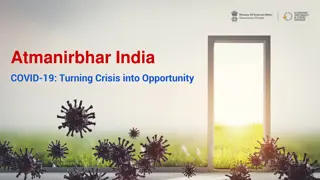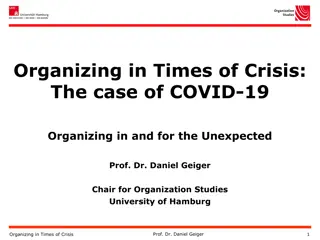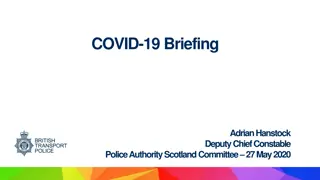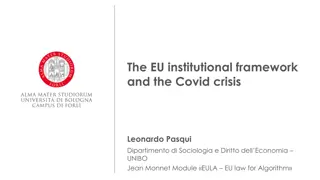Sustainable Work Practices During COVID-19 Crisis
Implementing sustainable work practices during the COVID-19 crisis is crucial for maintaining productivity and well-being. Self-regulation, daily recovery strategies, and effective resource management are highlighted. Explore strategies for frontline workers, those working from home, and those in the workplace to enhance performance and mental health.
Download Presentation

Please find below an Image/Link to download the presentation.
The content on the website is provided AS IS for your information and personal use only. It may not be sold, licensed, or shared on other websites without obtaining consent from the author.If you encounter any issues during the download, it is possible that the publisher has removed the file from their server.
You are allowed to download the files provided on this website for personal or commercial use, subject to the condition that they are used lawfully. All files are the property of their respective owners.
The content on the website is provided AS IS for your information and personal use only. It may not be sold, licensed, or shared on other websites without obtaining consent from the author.
E N D
Presentation Transcript
How to work sustainably during the COVID-19 crisis Dr Deirdre O Shea, F.Ps.S.I., C.Psychol.Ps.S.I. Senior Lecturer in Work and Organisational Psychology Kemmy Business School, University of Limerick Deirdre.oshea@ul.ie
Working from home Frontline workers Healthcare workers Working in workplace Unemployed
What were self-managing (O Shea, Buckley & Halbesleben, 2017) Self THOUGHTS & CONCENTRATION EMOTIONS MOTIVATION PERFORMANCE AND WELL-BEING Others
Stop and start self-regulation (DeBoer, Van Hooft & Bakker, 2011) Start self-regulation Stop self-regulation motivating ourselves to keep going Managing emotions and anxiety Managing work and life with less boundaries Staying focused, concentrating Persistence Maintaining a work day detaching from work
S Selection Elective vs loss-based O Optimisation limited resources we need to be careful how we use them! C Compensation (Freund & Baltes, 2002)
Daily recovery from work (Sonnentag, 2003) Psychological detachment Mastery Relaxation Control
Thank you! deirdre.oshea@ul.ie de Boer, B. J., van Hooft, E. A., & Bakker, A. B. (2011). Stop and start control: A distinction within self control. European Journal of Personality, 25(5), 349-362. Freund, A. M., & Baltes, P. B. (2002). The adaptiveness of selection, optimization, and compensation as strategies of life management: Evidence from a preference study on proverbs. The Journals of Gerontology Series B: Psychological Sciences and Social Sciences, 57(5), P426-P434. Freund, A. M., & Baltes, P. B. (2002). Life-management strategies of selection, optimization and compensation: Measurement by self-report and construct validity. Journal of personality and social psychology, 82(4), 642. O Shea, D., Buckley, F., & Halbesleben, J. (2017). Self-regulation in entrepreneurs: Integrating action, cognition, motivation, and emotions. Organizational Psychology Review, 7(3), 250-278. Sonnentag, S. (2003). Recovery, work engagement, and proactive behavior: a new look at the interface between nonwork and work. Journal of applied psychology, 88(3), 518.
